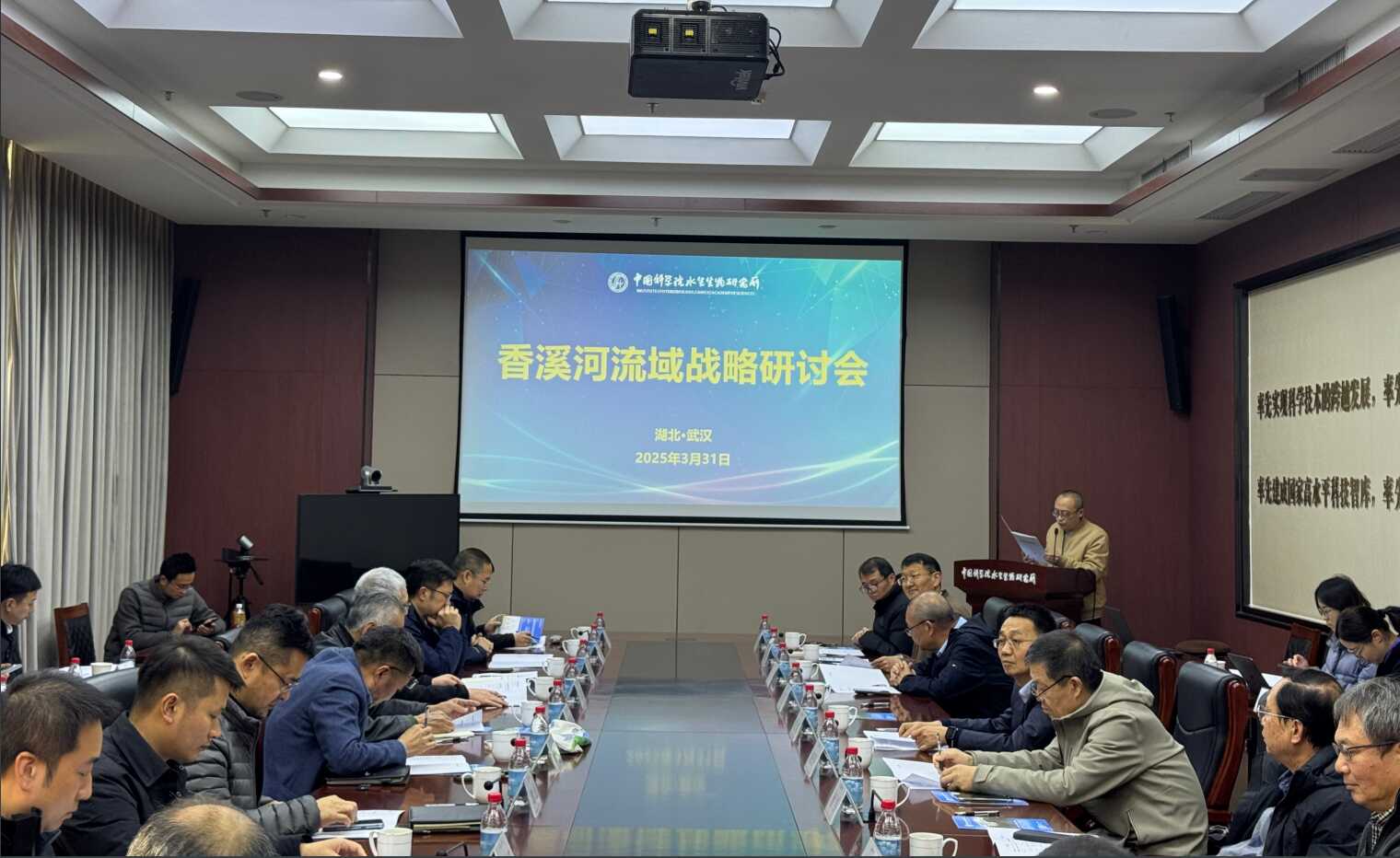
Newsroom
Xiangxi River Basin Research Sets New Directions

A strategic workshop on the Xiangxi River Basin was held on March 31, 2025 at the Institute of Hydrobiology (IHB) of the Chinese Academy of Sciences. (Credit: IHB)
A strategic workshop on the Xiangxi River Basin was held on March 31, 2025 at the Institute of Hydrobiology (IHB) of the Chinese Academy of Sciences. More than 30 experts, scholars, and government officials attended the meeting. The workshop was chaired by Prof. XU Jun, deputy director of IHB, and was attended by Prof. CHEN Yiyu (CAS member) and IHB Director Prof. MIAO Wei.
During the workshop, Profs. CAI Qinghua, XIAO Wenfa, and ZHANG Quanfa presented the latest scientific achievements regarding the Xiangxi River Basin, providing a solid foundation for further discussions. Following in-depth exchanges, the participants reached a consensus that the ecological protection of the Xiangxi River Basin is critical to the sustainable development of the Yangtze River Economic Belt. They emphasized the need to integrate cross-sector resources and establish a long-term collaborative mechanism for joint research efforts.
Prof. CHEN Yiyu highlighted the importance of multi-site networked observations, centering on the "One River, Three Stations" plan, to integrate data from multiple ecosystems including mountains, rivers, forests, farmlands, lakes, and grasslands. Establishing a comprehensive ecological monitoring network across the basin would provide accurate data support for scientific decision-making. He also emphasized that research efforts should align closely with the national "Yangtze River Protection" strategy, focusing on key technologies for enhancing carbon sink capacity, ensuring water quality, and maintaining biodiversity. Furthermore, he called for transforming scientific findings into ecological restoration solutions that directly address practical challenges in local governance.
Through interdisciplinary cooperation and multi-stakeholder collaboration, the workshop advanced the scientific planning of coordinated observation stations across terrestrial, aquatic, and reservoir systems. It also reinforced the positioning of scientific research to serve national strategies. The outcomes of the workshop are expected to provide both theoretical foundations and technical pathways to safeguard water quality and maintain the stability of ecosystems in the Yangtze River Basin.
Looking ahead, there are plans to conduct cross-regional joint research to tackle critical technological challenges and to establish a data-sharing platform. These efforts will contribute to the green development of the Yangtze River Economic Belt and support China’s broader ecological civilization construction through the power of science and technology.